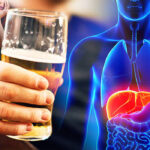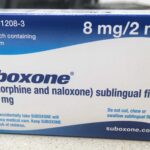An addiction to drugs or alcohol is treatable but takes time, treatment, and consistency. Research-based treatments can help people in recovery to stop using substances and return to a productive life. Yet, many people working to overcome their addiction relapse at least once during recovery.
Once addiction takes hold, it becomes a chronic disease. We need to think about it in the same vein as other chronic illnesses like diabetes. Patients are best served by managing their condition, as opposed to hoping for or expecting a cure. From 40 to 60 percent of people struggling with addiction relapse. Addicts are often more vulnerable to relapsing early in the treatment process. The majority who relapse, do so within the first 100 days. The good news is, the longer someone can live sober, the better their chances of staying that way. However, people can relapse at any time, even after years of living sober, given the chronic nature of the illness.
As a result, treatment programs focus on relapse prevention. Programs teach:
- How to identify warning signs of relapse
- Strategies to prevent relapse
- How to manage feelings or behaviors that could lead to relapse.
Since addiction is a chronic illness, people in recovery need a long-term prevention plan that addresses their specific situation.
Currently, relapse is viewed as a gradual process. While many people think of relapse as the point when they used again, the actual relapse often occurred weeks or even months before taking the substance.
The reasons for relapsing can be divided into three stages:
- Emotional relapse occurs when the individual isn’t using or consciously considering using their substance of choice. However, they are engaging in emotions and behaviors that set them up for a relapse. Warning signs may include denial, bottling up emotions, isolating themselves, or not participating in treatment.
- Mental relapse occurs when the person struggles between wanting to use but also not wanting to use. Warning signs may include thinking about places, people, or things associated with past use, minimizing the past consequences of their use, or thinking of how they can stay in better control when using.
- Physical relapse occurs when the individual uses their substance of choice again. Warning signs include putting themselves in situations where they can easily use.
Successfully stopping an addiction is a process. The free Rehab Helpline for Drugs and Alcohol at (877) 467-4825 will connect you to a rehabilitation admissions expert. They can answer your questions about finding the right treatment options for you or your loved one.
3 Reasons Why People with an Addiction Relapse
Learning to live without substances requires people to learn new coping techniques, new routines, and even new ways to think about themselves and how they interact with the world. Additionally, substance abuse can cause physical changes to the brain.
These changes to the brain and how it functions can make it harder for people with an addiction to exercise self-control. They may be more impulsive. Cues in their environment can trigger cravings, and the changes in their brain can make it hard to resist despite wanting to stop.
For individuals with a substance use disorder, learning to live without drugs or alcohol is difficult. Fortunately, treatment can help them recognize the warning signs of relapse and learn how to prevent them.
Understanding the three stages of relapse can help a person avoid relapse and develop a relapse prevention plan, especially early in the recovery process.

1. Emotional Relapse: Warning Signs and Triggers
During the initial phase, individuals are not thinking about using their drug of choice. They don’t want to relapse. But emotional and behavioral factors may be put them at risk for future relapse.
Denial and poor self-care can play a role in setting them up for relapse. Some may slide from good habits of eating a healthy diet, good sleep, or tending to personal hygiene. Others may not be tending enough to their emotional self-care. They may be placing unrealistic expectations on themselves. They may need to learn how to be kind to themselves or explore healthy ways to relax.
Lack of proper self-care can contribute to increased stress, a common trigger of relapse. For many struggling with addiction, they may use their substance of choice to cope with stress or problems. If they’ve stopped taking care of themselves or are in denial, they are at increased risk of going back to using substances to manage their stress.
Common warning signs of emotional relapse:
- Isolation from supportive friends and family
- Skipping treatment meetings
- Avoiding dealing with problems
- Ignoring difficult emotions
- Not addressing evident stress in their lives
- Holding in their feelings and emotions or bottling them up
- Poor sleep, eating, or self-care habits
2. Mental Relapse: Warning Signs and Triggers
In this stage, the person may feel at war with themselves. Part of their conscious thought wants to use their drug of choice. The other part does not want to use. The internal struggle can wear them down, leaving them vulnerable to relapsing.
Occasional cravings or brief thoughts of using are a normal part of the recovery process. Once you have an addiction, you can’t undo those experiences and memories. However, people experiencing a mental relapse may have thoughts of using and cravings more frequently and intensely than those having occasional cravings. They may not discuss their feelings and thoughts or have the skills to manage these experiences.
During this time, people also may lose the ability to accurately judge and identify all of their high-risk situations. They may feel it’s a sign of weakness to avoid high-risk situations. So they may go to places, situations, or be around people associated with their addiction without having the coping skills to manage the situation. Given their internal struggle about using, they are at greater risk for relapsing.
Common warning signs of mental relapse include:
- Thinking more frequently about people, places, and things associated with past use
- Being around reminders or triggers of the addiction, including going to high-risk situations
- Within their memory, minimizing the penalties and consequences from past use
- Thinking about ways to better control using the substance as a justification for using
- Planning a relapse
3. Physical Relapse: Warning Signs and Triggers
In this stage, the person starts to use again. Physical relapse can be brought about solely by having the opportunity to use or a situation where they think they will not be caught using.
This final stage often results after a mental relapse where the person had been thinking more frequently about using or barriers preventing them from using were slowly broken away. At this point, the person may have stopped actively participating in treatment or isolated themselves from people who can help.
Common warning signs of physical relapse include:
- Actively seeking or being in a situation or place that provides the opportunity to use
- Feeling like they can have ‘just one’
- Starting to use their substance of choice frequently
Seek Treatment to Prevent or Recover from a Relapse
Recovery from addiction isn’t as simple as resolving never to use the drug again. Recovery is a process that involves learning how to live life in new ways that help the person avoid using. The risk of relapsing is high during this process, especially in the first year.
Relapse is a gradual process. Learning how to identify the early warning signs of relapse and strategies to address and prevent relapse is a critical part of recovery.
Recovery from addiction is possible. With treatment, supports, and a plan, people can learn how to manage the three stages of relapse, recognize the early warning signs, and develop coping skills to successfully prevent relapse.
Do you or a family member need help with an addiction? The free Rehab Helpline for Drugs and Alcohol at (877) 467-4825 will connect you with a rehabilitation admissions expert. They will answer your questions about treatments, options, insurance, and more, so you or your loved one can get the help they need.









